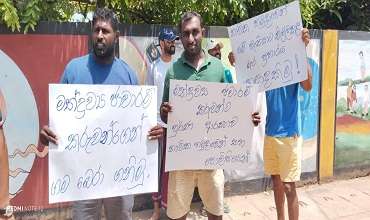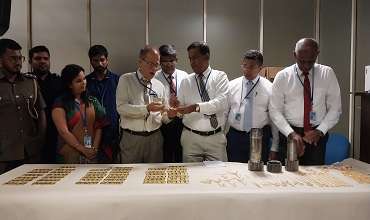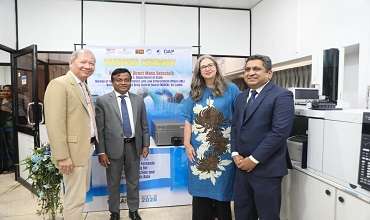The National Chamber of Exporters of Sri Lanka (NCE) has issued a strong and urgent call to the government not to place additional burdens on the export sector at a time when resilience is already being tested.
At a seminar held recently, attended by industry leaders, tax professionals, and key stakeholders, the NCE reiterated its position that the removal of the Simplified Value Added Tax (SVAT) scheme must not proceed until all necessary digital and procedural reforms are fully operational and tested.
With the government announcing that SVAT will be abolished by the end of October 2025, exporters are urging authorities to delay any action on SVAT removal this year—a year already fraught with economic headwinds and external volatility. The clear message from the seminar: exporters need breathing space, not added complexity, the chamber said in a media release.
Originally introduced in 2005 and streamlined in 2011, SVAT was designed to circumvent the many inefficiencies of the traditional refund-based VAT system. It eliminated upfront VAT payments, enabling exporters to maintain working capital and avoid delays and bureaucratic hurdles in claiming refunds.
“The export community is not asking for indefinite protection,” emphasised Indhra Kaushal Rajapaksa, President of the NCE. “But we are pleading with the government—do not dismantle SVAT this year. Exporters are already under pressure from rising energy and logistics costs, global trade uncertainty, and domestic inflation. Now is not the time to weaken a sector that brings in vital foreign exchange.”
Exporters remember the pre-SVAT era all too well: refund delays stretching for months, cumbersome paperwork, and debilitating cash flow gaps. Many businesses were forced to borrow at high interest rates just to survive. The NCE warns that a return to such conditions—without a fully functional, integrated, and tested VAT refund system—would be a severe policy misstep.
While the removal of SVAT is said to align with IMF recommendations and broader fiscal reforms, the NCE cautions that global templates must be adapted to local conditions. In developed economies, VAT refunds are processed within 30 days through fully digitised systems. In Sri Lanka, however, exporters continue to experience refund delays of 3–6 months or longer.
“We support digitisation. We support efficiency. But we cannot support premature changes that jeopardise businesses and livelihoods,” Mr. Rajapaksa stressed. “Until the systems at the IRD, Customs, and Ports Authority are seamlessly integrated, tested, and shown to work under real-time conditions, the SVAT mechanism must remain.”
You can share this post!
Content

A Thai woman walking topless in Arugam Bay town has been arrested by the Police.

The UK government has unveiled a package of reforms to simplify imports from developing countries which allows for more garments manufactured in Sri Lanka to enter the UK tariff-free.

The Cabinet has approved a proposal for Sri Lankans overseas to apply for their passports through an online system via the Lankan diplomatic missions.

Villagers in Nirmalapura, Daluwa, Norochcholai today staged a protest over an incident where a group of Navy officials and sailors had assaulted a resident in the area over night, Police said.

A passenger attempting to smuggle the largest quantity of gold of 35 kilo grams was arrested by the Customs at the Bandaranaike International Airport (BIA) today, a senior official said.






Leave Comments